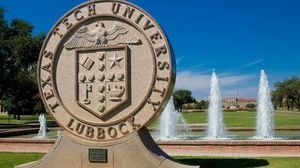Waymo, the autonomous vehicle company owned by Alphabet, is set to begin testing its self-driving cars on the streets of Tokyo, marking the firm's first venture outside the United States. The company announced its plans to launch these trials, focusing on the mapping of key locations and data collection, starting early 2025.
This development follows Waymo's recent expansion of operations within the U.S., where it has been actively conducting tests across various cities, including Miami, Los Angeles, Austin, and Atlanta throughout 2024. Waymo's entry to Tokyo emphasizes its strategy to globalize its innovative technology, particularly suited for urban settings. The trials will be conducted under the partnership with Nihon Kotsu, Japan's largest taxi operator, and will utilize the Jaguar I-PACE vehicles for their initial routes.
During the first phase of the Tokyo trials, Nihon Kotsu drivers will manually operate the Waymo vehicles. This hands-on involvement aims to facilitate the mapping of several high-traffic districts, including Minato, Shinjuku, Shibuya, Chiyoda, Chūō, Shinagawa, and Kōtō, gathering important data to inform the autonomous technology's adaptation to the unique driving environment found there.
The data collected from these manual test drives will be critically significant as it will assist Waymo's artificial intelligence systems with the necessary training to effectively navigate Tokyo's congested streets. Waymo plans to replicate Tokyo's driving conditions using closed-course tests conducted in the United States to fine-tune its robotaxis before initiating public service.
While Waymo has not yet committed to beginning commercial operations following the initial trials, the company's partnership with the GO taxi app suggests future plans to integrate their autonomous services within Japan's existing transportation framework. The Japanese government views the development of driverless technology as particularly beneficial, especially considering the country's aging population. Recent legal amendments have facilitated Level 4 autonomous driving on local roads, setting the stage for broader adoption of driverless cars.
Waymo's expansion is not devoid of competition. It occurs as General Motors prepares to cease operations of its Cruise robotaxi services, officially withdrawing from the Japanese market, where it had previously partnered with Honda. Honda now aims to re-evaluate its strategy for launching self-driving ride-hail services, which was anticipated for early 2026, following GM's strategic retreat.
The pilot tests by Waymo will have significant ramifications as they will be closely monitored by both local stakeholders and international observers. The company aims to glean insights from local partners, government officials, and community groups, ensuring its services appropriately meet the residents' needs and seamlessly integrate with Tokyo's transportation ecosystem.
Concerns over safety and the efficacy of autonomous vehicles remain at the forefront as these trials commence. Tokyo presents unique challenges such as left-hand vehicular traffic and densely populated urban areas, which will test the limits of Waymo's existing technology.
Waymo commented on the importance of this venture: "Our upcoming road trip to Tokyo gives us the chance to work alongside local partners, government officials, and community groups to understand the new landscaping," illustrating the collaborative approach intended to bridge technology with community needs.
Although Waymo's primary focus remains on training and adaptive technology for urban landscapes, the company has also committed to future testing of its autonomous vehicles within the U.S. market. They have raised substantial funding, amounting to $5.6 billion, to support expansion plans, not only to provide services across various cities domestically but also to streamline operations abroad.
Waymo's foray onto Tokyo's roads signals not just another test site but shines light on the transformative potential of autonomous technology within urban transportation systems. Committed to enhancing the efficiency of transport solutions, Waymo aims to contribute significantly to improving mobility, particularly as Japan stands at the threshold of comprehensive driverless options to accommodate its citizens.



